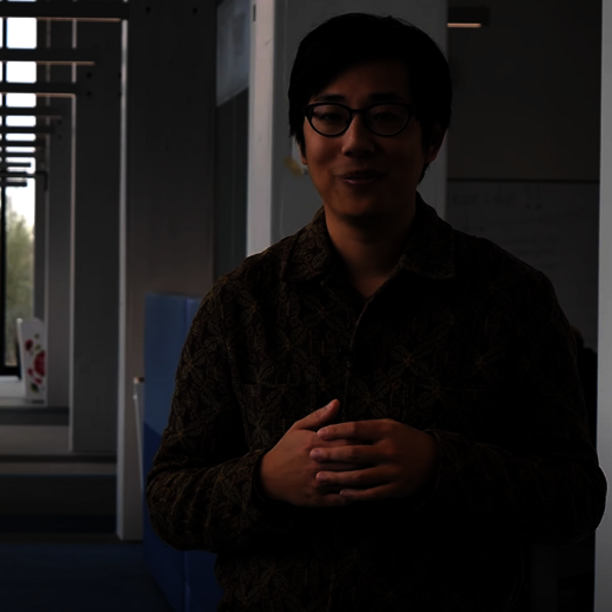How can our interactions with AI-driven systems and products be understood and optimally designed? Human-Technology Interaction’s Human-Centered AI track aims to shed light on this based on insights from cognitive psychology, user experience (UX) design, human-AI interaction and the philosophy and ethics of AI. By combining a human-centered perspective and specific technical knowledge (such as machine learning and explainable AI), you will have opportunities to design and evaluate the ways in which people interact with algorithms and automation in various contexts of current and emerging AI applications, including recommender systems, social robotics and creative AI.
What you will learn as part of the Human-Centered AI track
As a Human-Technology Interaction master’s student, you will acquire the knowledge and skills to assess new AI developments in view of human values, goals, constraints and capabilities. In the Human-Centered AI track, you will be able to learn and integrate such insights with a certain level of technical knowledge about AI methods in order to become a competent engineer of human-AI interaction who considers human values at the core of their work. More specifically, you will develop yourself in the following areas:
- Advanced topics in cognitive psychology to facilitate the assessment of human capacities and constraints as they interact and make decisions together with AI models and algorithms.
- The basics of data science and machine learning, which enable you to understand the strengths and limitations of AI methods and to work with machine learning experts.
- State-of-the-art techniques (such as interactive machine learning and explainable AI) that address critical issues in human-AI interactions like transparency, fairness and trust.
- Cutting-edge UX design principles and techniques and the application of these in the design and evaluation of the user experience with AI-driven products.
- The philosophy and ethics of AI to help you to assess the social and societal impacts of AI applications and to safeguard their developments.
When to choose the Human-Centered AI track
How do we reduce biases in machine learning algorithms when they are used to select job candidates? Can we explain why the algorithms behind Spotify recommend specific songs to users? How can we make sure that people trust highly automated systems, such as autonomous cars or robots? Will generative models like ChatGPT reshape the ways in which creative workers go about their practice? And how can we safeguard the development of AI in all these areas so that it enhances rather than undermines human values? If these questions inspire you, Human-Centered AI may be the right track for you.
How you will learn
TU/e is located in Brainport – Europe’s most innovative technology region – and this track therefore offers many opportunities to interact with leading companies. This includes site visits, organizational challenges, research projects and guest lectures. To ensure that students feel supported throughout their master’s program and make well-informed decisions, Human-Technology Interaction also makes use of a mentor system. An experienced lecturer and researcher will guide you in making choices on elective courses, studying abroad and the graduation project. This region, program and mentoring system all enable students to tailor their education to their skills and interests with a view to their long-term future.
Related master's program and tracks
Visit us
Do you want to stay informed about important information about studying at TU/e and upcoming events? Then create an account in MyStart@TU/e!
Contact

This program is NVAO-accredited. In the Netherlands, the NVAO assesses the internal quality assurance of universities and colleges and the quality of their programs.
